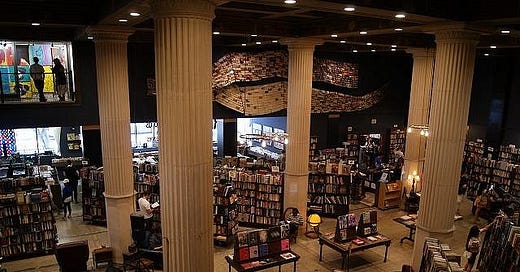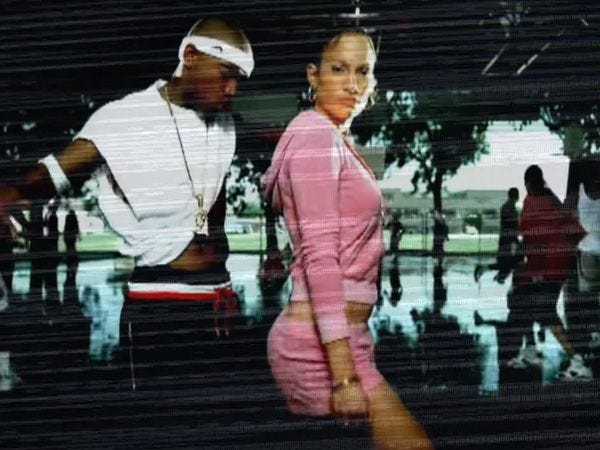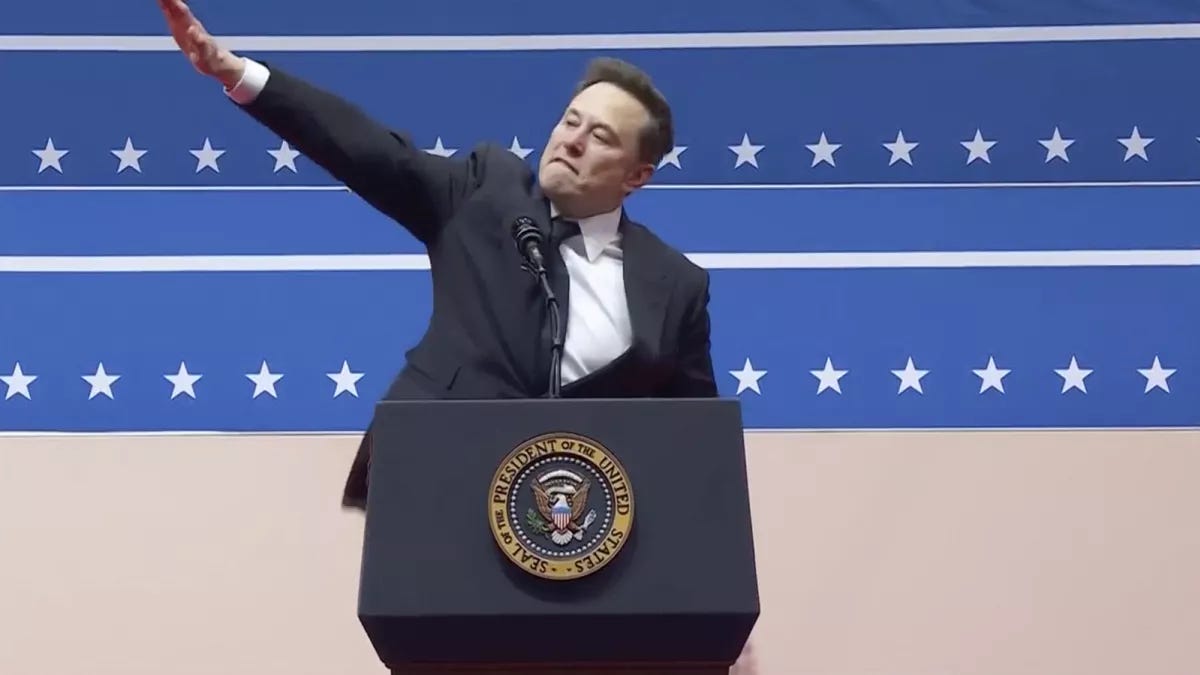Making Real: Central Moral Framework of Our Time
Why do we crave authenticity, yet celebrate the art of faking it?
It was the beginning of the year, and I was cruising through The Last Bookstore in Los Angeles when I came across an extremely attractive title—Authenticity Industries. I had no idea how relevant it would become over time. I’m diving into this brilliant media history book by Michael Serazio, published by Stanford University Press, so you don’t have to.
The Last Bookstore in LA
The obsession with being ‘real’ saturates our culture, from reality TV to TikTok influencers, yet paradoxically, the most ‘authentic’ encounters are often the most calculated. In an era where curated imperfection and raw relatability are marketing tools, what does authenticity even mean? And more importantly, who gets to define it?
Is authenticity Donald Trump's superpower, or just another carefully honed political strategy? Are NFTs reshaping digital authenticity, or are they simply speculative hype? Meta's recent decision to end its fact-checking program in favor of a "Community Notes" system raises questions about the role of user-generated content in shaping truth. And what about Elon Musk, was his controversial gesture at a recent political rally an innocent expression of excitement, or something far more dangerous? These incidents prompt us to ask: What does authenticity mean in 2025? Is it a genuine reflection of one's beliefs, or has it become a strategic tool in the realms of politics, pop culture and marketing?
Core Analysis
A few decades into the twenty-first century, America is fixated on authenticity. It is both profound and superficial, genuine and performative. Authenticity fuels reality TV, cements political personas, and legitimizes brands. President Donald Trump’s unapologetic disregard for decorum was championed as ‘authentic’ just as Bruce Springsteen’s working-class credibility made him the voice of a generation. From influencer #sponcon to corporate activism, the ‘realness’ people buy into is often a carefully constructed illusion.
Yet, the contradiction remains: authenticity is not objectively real. It is a perception, a feeling. Something can be labeled ‘authentic’ not because it is inherently so, but because it aligns with what we expect authenticity to look like.
Case Studies & Examples
Netflix’s The Circle: A game show where contestants compete by performing their most ‘relatable’ and ‘real’ online personas. Joey Sasso, the slicked-back reality bro, won by claiming, “I didn’t have a strategy. I was just being myself.” But was he?
LeBron James’ Social Media Strategy: Carefully curated glimpses into his life—texts from his mom, rap lip-syncing videos—are celebrated for their ‘authenticity,’ despite being a well-managed brand strategy.
Jennifer Lopez & Buckingham Palace: J.Lo’s ‘I’m real’ branding campaign and Buckingham Palace’s release of Queen Elizabeth’s childhood photos both reflect an attempt to perform authenticity, despite their deeply controlled narratives.
BS Filter: Challenge the Narrative
The industry of authenticity thrives on paradox. Social media influencers curate ‘relatable’ struggles, celebrities stage ‘unfiltered’ moments, and even Silicon Valley tries to manufacture ‘realness’ through blockchain-backed digital artifacts. The act of proving authenticity often makes it feel even more contrived. If being real requires constant validation, is it really real at all?
So, what does ‘authenticity’ mean in a post-truth, technocapitalist world where everything is a measurable performance? Does realness exist beyond perception, or is it just another product being sold to us? Keep being curious, and let’s ask the right questions.







